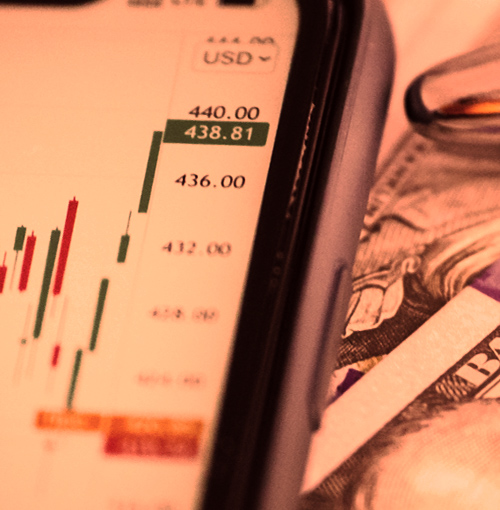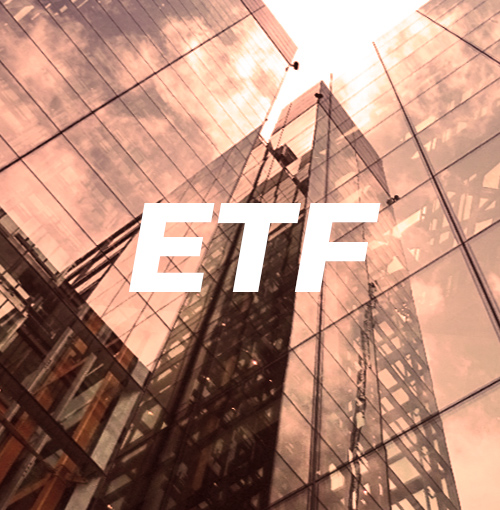
Understanding the Power of Informed Capital: A Deep Dive into Smart Money
In the exciting world of investing, 'smart money' carries significant weight. This comprehensive guide delves into the intricacies of smart money, helping you understand its meaning, how to identify it, and the techniques to track its movements in financial markets.
When we venture into the world of finance, we frequently encounter the term 'smart money.' But what exactly does it entail in the realms of investing and trading? This article aims to provide a comprehensive understanding of the concept, its significance, and its implications on the market. It will also equip readers with the ability to identify, track, and utilize smart money movements to their advantage. So, let's dive into the intriguing world of smart money.
Defining 'Smart Money'
'Smart Money' represents the funds governed by seasoned financial players such as central banks, institutional investors, financial experts, and funds. Originally a term coined in the gambling sphere, 'smart money' referred to bets placed by experienced players with a history of winning streaks.
- The phrase 'Smart Money' denotes the capital utilized by market veterans, central banks, financial experts, and other professional investors.
- The smart money also stands for the power that drives and influences financial markets, commonly steered by central bank actions.
- 'Smart Money' is typically invested on a grander scale compared to retail investments.
Delving Deeper into Smart Money
'Smart Money' is an investment made by those considered 'in the know' or seasoned, or both. Despite the popular perception that smart money investments outperform their counterparts, there's scant empirical evidence to substantiate this claim. However, such capital inflows undeniably influence various speculation methodologies.
The term's origin lies in the world of gambling, where bettors with extensive knowledge of the game or insider information, inaccessible to the public, were termed as playing with 'smart money.' Similarly, in the investment world, this term is assigned to those investors presumed to have a deeper understanding of the market, or access to privileged information not available to an average investor. Consequently, when trading patterns of institutional investors diverge from retail investors, 'smart money' is perceived to stand a better chance of success.
'Smart Money' also refers to the large-scale monetary force capable of causing market shifts. In this sense, the central bank epitomizes the 'smart money,' while individual traders hitch a ride on the smart money wave.
The Art of Identifying Smart Money
Understanding the flow of smart money requires paying attention to some key indicators:
- Massive Transactions: Smart-money investors frequently make substantial, tactical investments in companies they anticipate will thrive in the long run. So, one must scrutinize the volume analysis of securities or derivatives to decipher where the smart money usually ventures or has ventured recently.
- Insider Buys: Insiders like company executives or board members are viewed as smart money due to their privileged access to exclusive company data. Their decision to purchase shares from their own company signals confidence in the future prospects of the firm.
- Growth Potentials: Smart money investors often target sectors or industries predicted to witness considerable growth in the future, such as the technology or healthcare sectors.
- Long-term Investment Vision: Retaining investments over an extended period, allowing them to develop and mature, is generally indicative of smart money.
- In-depth Fundamental Analysis: Smart-money investors typically conduct thorough fundamental analysis. This includes scrutinizing financial statements, management teams, and market trends.
Being able to spot smart money doesn't absolve an investor from conducting their own meticulous research and analysis before deciding on any investment.
Tracing the Path of Smart Money
Several methods allow tracking of smart money within financial markets, which include:
- CFTC Filings: The Commodity Futures Trading Commission (CFTC) mandates substantial traders, including institutional investors and hedge funds, to disclose their positions in futures contracts. Known as Commitments of Traders (COT) reports, these documents offer valuable insights into the trading behaviors of smart-money investors.
- Volume Analysis: The large trades made by smart-money investors can be detected by studying trading volumes of different securities and derivatives. This can help gauge if smart money is on a buying or selling spree.
- Insider Trading Reports: These reports offer valuable insights into company insiders' transactions, often hinting at smart-money activity.
- 13F Filings: Institutional investors managing assets exceeding $100 million must file a quarterly report called a 13F with the Securities and Exchange Commission (SEC). These reports reveal the institution’s publicly traded securities holdings, providing an understanding of smart-money investors' investment strategies.
- Hedge Fund Databases: Hedge funds are synonymous with smart money. There are several databases that monitor the holdings of hedge funds. These databases offer information about the stocks smart-money investors are trading or investing in.
- News and Market Sentiment Analysis: Access to information and resources allows smart-money investors to analyze market sentiment and make informed investment decisions. By keeping tabs on news and sentiment analysis, investors can discern the market direction and whether smart-money investors are bullish or bearish.
The True Scale of Smart Money
Influential investors like Warren Buffett are classified as smart-money investors, but the scale of their activities isn't always considered. For instance, when cash reserves at Buffett’s company, Berkshire Hathaway, are not being invested, it can be seen as a clear sign that Buffett does not perceive many value opportunities in the market. However, keep in mind that Buffett operates on a different scale. A $25,000 investment might not significantly impact a billion-dollar portfolio.
Buffett’s smart money typically acquires companies rather than just taking positions. Institutional investors of Buffett’s size require a certain scale to make a significant impact on their portfolio. Thus, even when smart money does not see many value picks in the current market conditions, it doesn't imply that opportunities, especially for smaller stocks, are non-existent.
What is the standard transaction size of smart money?
Smart money transactions typically range from tens of millions to hundreds of millions or even billions of dollars. Due to their size and expertise, these investors often can negotiate favorable terms and access exclusive investment opportunities.
Who falls under the smart money category?
Institutional investors, hedge funds, private equity firms, high-net-worth individuals (HNWIs), corporate executives, and board members of large corporations are generally considered smart money.
What are the hallmarks of smart money?
Smart-money investors are typically highly analytical and research-driven, employing a variety of tools and resources to dissect financial markets and identify investment opportunities. They often have a long-term investment horizon and aim to build portfolios that can generate consistent returns over time. Additionally, smart-money investors often follow a disciplined approach to investing, with defined investment criteria and a process for evaluating investment opportunities.
In Summary
The term 'smart money' refers to investments made by seasoned investors, such as institutional investors, hedge funds, or private equity firms, who have a proven track record of success in financial markets. These investors usually have access to considerable resources and profound understanding of the markets, and they frequently focus on sectors or industries with strong growth potential.
Investors can track smart money by analyzing data sources like CFTC filings, volume analysis, insider trading reports, 13F filings, news analysis, and market sentiment analysis. While identifying smart money can yield valuable insights, it is crucial for investors to carry out thorough research and analysis before making any investment decisions.
Understanding and tracking smart money can provide valuable insights into the strategies of seasoned investors and the direction of financial markets. However, it is vital to remember that while smart money can guide us, it should not replace thorough research and analysis when making investment decisions.
- Share this article





